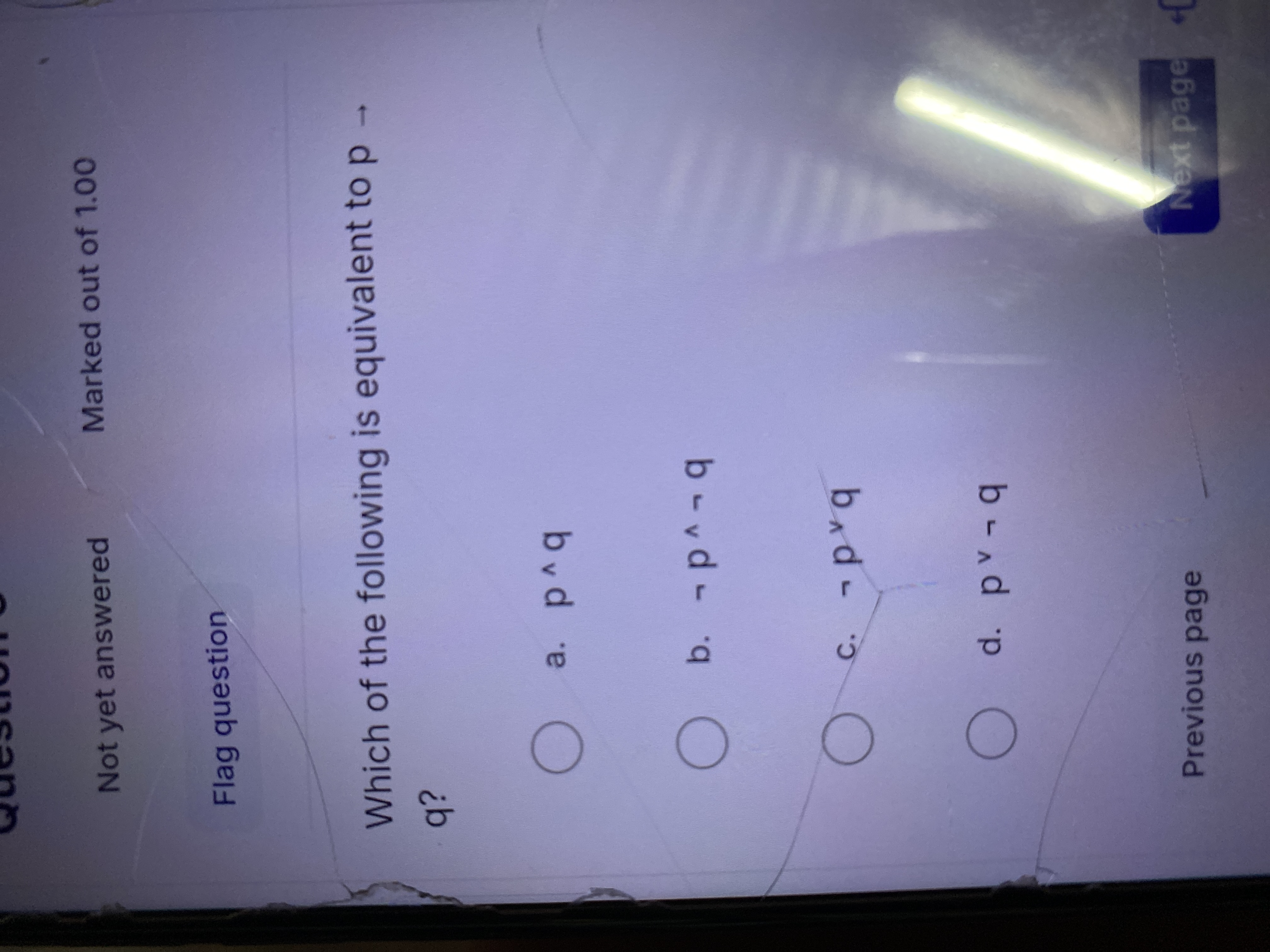Which of the following is equivalent to p → q?

Understand the Problem
The question is asking which of the provided logical expressions is logically equivalent to the implication 'p → q'. This involves an understanding of logical equivalences in propositional logic.
Answer
(c): $\neg p \lor q$
Answer for screen readers
The correct option is (c): $\neg p \lor q$.
Steps to Solve
-
Understanding Implication The implication $p \rightarrow q$ can be rewritten using logical equivalences. It is equivalent to saying "if $p$ is true, then $q$ is also true".
-
Express Implication in Terms of Negation and Disjunction Using the logical equivalence, $p \rightarrow q$ can be expressed as $\neg p \lor q$. This means that either $p$ is false or $q$ is true.
-
Match with Options Provided Now, we need to find which of the options matches $\neg p \lor q$:
- Option (a): $p \land q$ - This is not equivalent.
- Option (b): $\neg p \land \neg q$ - This is not equivalent.
- Option (c): $\neg p \lor q$ - This matches our derived expression.
- Option (d): $p \lor \neg q$ - This is not equivalent.
- Conclusion The option that is logically equivalent to $p \rightarrow q$ is option (c): $\neg p \lor q$.
The correct option is (c): $\neg p \lor q$.
More Information
In propositional logic, the implication $p \rightarrow q$ can often be rewritten to simplify logical problems. The equivalences allow for easier manipulation and understanding of logical expressions.
Tips
- Confusing implication with conjunction. Implication $p \rightarrow q$ is not the same as $p \land q$.
- Overlooking the equivalent form of implication, which can lead to incorrect matching with the provided options.
AI-generated content may contain errors. Please verify critical information